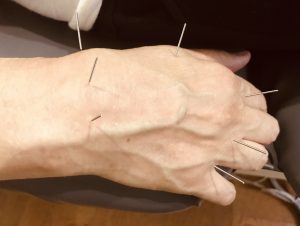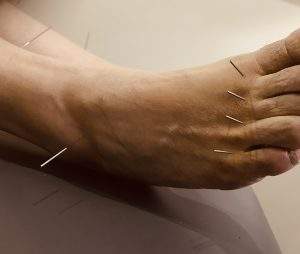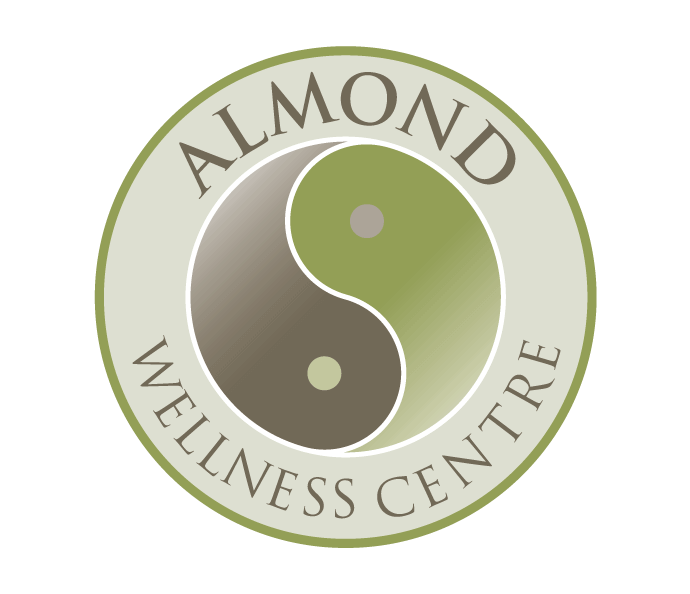
Table of Centents
Acupuncture and Traditional Chinese Medicine (TCM) can be a powerful addition to any treatment plan – without common side effects.
Common types of arthritis
1. Osteoarthritis (OA)
It occurs when the cartilage between the joints breaks down, usually affecting the hips, hands, knees, low back, or neck.
Some factors can increase your risk, including a joint injury, being overweight, aging, and genetics. Putting stress on a joint through repetitive motion can also increase your risk.
2. Rheumatoid arthritis (RA)
This chronic condition occurs when the lining of the joints becomes inflamed, and can lead to long term joint damage and even loss of movement. Women are two to three times more likely to get RA than men. RA often starts in the hands or feet, and usually affects the same joints on both sides of the body.
3. Gout and psoriatic arthritis
These are two other common types of arthritis that can affect individuals.
Symptoms
Main symptoms of arthritis include:
- Warm, swollen or tender joints
- Joint stiffness, especially in the morning
- Fatigue
- Flu-like symptoms such as fever
- Weakness
Treatment options
Treatment generally focuses on relieving pain and preventing further joint damage. Often this is done through the use of anti-inflammatory drugs and other medications, as well as through self-care and physical therapy. In some cases, surgery may even be needed.
Arthritis and Chinese medicine
Chinese medicine has a long history of using various approaches to address arthritis and related conditions. Traditional Chinese Medicine (TCM) views arthritis as a result of imbalances or disruptions in the flow of Qi (vital energy) and blood within the body. TCM treatment aims to restore the balance of Qi and blood to alleviate symptoms and improve overall health. Here are some common approaches used in Chinese medicine for arthritis:
Acupuncture

Benefit of acupuncture for arthritis
Acupuncture is a commonly used treatment modality in Traditional Chinese Medicine (TCM) for various types of arthritis. It involves the insertion of thin needles into specific points on the body to stimulate the flow of Qi (vital energy) and promote balance. Here’s how acupuncture can be beneficial for arthritis:
Pain Relief:
Acupuncture is known for its analgesic effects and can help reduce pain associated with arthritis. The insertion of acupuncture needles stimulates the release of endorphins, which are natural pain-relieving substances produced by the body. It can help alleviate joint pain, muscle pain, and general discomfort associated with arthritis.
Anti-Inflammatory Effects:
Acupuncture has been shown to have anti-inflammatory properties. By promoting the flow of Qi and blood, it helps reduce inflammation in the affected joints. This can help relieve swelling, stiffness, and improve joint mobility.
Improve Joint Function:
Acupuncture aims to restore the balance of Qi and promote optimal function within the body. By addressing the underlying imbalances contributing to arthritis, it can help improve joint function and range of motion. This can lead to increased mobility and decreased disability associated with arthritis.
Individualised Treatment:
Acupuncture in TCM is highly individualised, and the selection of acupuncture points depends on the specific pattern of disharmony identified in each person. A TCM practitioner will assess your symptoms, medical history, and conduct diagnostic techniques (such as pulse and tongue examination) to determine the appropriate acupuncture points for your specific type of arthritis.
Chinese herbal medicine
Chinese herbal formulas are commonly prescribed in TCM to address arthritis. The selection of herbs is based on the individual’s specific pattern of disharmony, which is determined through TCM diagnostic methods. These formulas may include herbs with anti-inflammatory, analgesic, and immunomodulatory properties. Herbal medicine is often tailored to the individual and can be used internally (taken orally) or externally (applied topically)
10 common Chinese herbs/herbal formularies for arthritis
Chinese herbal medicine has been used for centuries in Traditional Chinese Medicine (TCM) to manage arthritis symptoms and promote overall health and well-being. Chinese herbs are often prescribed based on an individual’s specific pattern of disharmony identified in TCM diagnostics. Here are 10 commonly used Chinese herbs /herbal formularies for arthritis:
1. Eucommia Bark (Du Zhong):
Known for its tonifying properties, Eucommia bark is believed to strengthen the bones, tendons, and ligaments. It is often used in formulas for arthritis and joint pain.
2. Chinese Skullcap (Huang Qin):
Chinese Skullcap has anti-inflammatory and analgesic properties. It is commonly used in formulas to alleviate joint inflammation and reduce pain in arthritis.
3. White Willow Bark (Bai Liu):
White Willow bark has been used traditionally for pain relief and has anti-inflammatory effects. It is often included in formulas for joint pain associated with arthritis.
4. Frankincense (Ru Xiang) and Myrrh (Mo Yao):
These resinous substances are frequently used together in formulas for arthritis. They are believed to have analgesic and anti-inflammatory properties.
5. Clematis Root (Wei Ling Xian):
Clematis root is commonly used in TCM for joint pain and swelling. It is believed to promote blood circulation and alleviate stiffness and pain.
6. Mulberry Twig (Sang Zhi):
Mulberry twig is known for its ability to dispel wind and dampness in TCM. It is often used in formulas for arthritis with symptoms of stiffness, swelling, and limited mobility.
7. Gentianae Macrophyllae (Qin Jiao):
Gentianae Macrophyllae is great for arthritis pain, swelling joints. It relieves pain and reduce inflammation, especially with muscle tension in the upper extremities.
8. San Bi Tang (Three Painful Obstruction Decoction):
This herbal formula combines various herbs such as Rx. Dipsaci (Xu Duan), Saposhnikoviae (Fang feng) and Panax Ginseng (Ren Shen) to relieve all types of joint pain associated with arthritis.
9. Juan Bi Tang (Remove Painful Obstruction Decoction):
This formula includes herbs such as Gentiana Macrophylla Root (Qin Jiao) and Large-Leaf Gentian Root (Da Qin Jiao). It is used to alleviate joint pain, swelling, and stiffness.
10. Du Huo Ji Sheng Tang (Angelica Pubescens and Sang ji sheng Decoction):
This formula contains Pubescent Angelica Root (Du Huo) and Mulberry Mistletoe Stem (Sang Ji Sheng). It is often used for chronic joint pain, particularly in the lower back and knees.
Herbal remedies may be prescribed as part of a comprehensive treatment plan that may also include acupuncture, dietary adjustments, and lifestyle modifications. Please note that Chinese herbal medicine should be prescribed and administered by qualified registered TCM practitioners like us at Almond Wellness Centre.
Other TCM therapies
Other Chinese medicine therapies including Tui Na Massage, Qi Gong and Tai Chi.
Tui Na is a therapeutic Chinese massage technique that involves applying pressure, kneading, and stretching to specific areas of the body. Tui Na aims to improve circulation, relax muscles, reduce pain, and restore the flow of Qi. It can be used as a standalone therapy or in combination with other TCM treatments.
Qi Gong and Tai Chi are mind-body practices that involve gentle movements, breathing exercises, and meditation. These practices are believed to promote the flow of Qi, improve flexibility, balance, and overall well-being. They can be beneficial for individuals with arthritis by reducing pain, increasing joint mobility, and improving overall quality of life.
Researches
Acupuncture anti-inflammatory effects
- A randomised controlled trial published in the Journal of Pain (2017) investigated the effects of acupuncture on inflammatory markers in patients with knee osteoarthritis. The study found that acupuncture reduced the levels of inflammatory markers, such as tumor necrosis factor-alpha (TNF-α) and interleukin-6 (IL-6), compared to sham acupuncture.
- A systematic review and meta-analysis published in PLOS ONE (2018) examined the effects of acupuncture on systemic inflammatory markers in various diseases. The analysis included studies on rheumatoid arthritis, chronic obstructive pulmonary disease, and post-stroke inflammation, among others. The review concluded that acupuncture showed potential for reducing inflammatory markers in these conditions, but further well-designed studies were needed.
Acupuncture Improved Joint Function
- For osteoarthritis:
- A randomised controlled trial published in the Annals of Internal Medicine (2004) compared acupuncture with sham acupuncture for knee osteoarthritis. The study found that acupuncture significantly improved physical function and reduced pain compared to sham acupuncture.
- A systematic review and meta-analysis published in the Journal of Clinical Medicine (2020) evaluated the effects of acupuncture on knee osteoarthritis. The analysis of multiple studies showed that acupuncture had a positive effect on improving joint function and reducing pain.
- For rheumatoid arthritis:
- A randomised controlled trial published in the Journal of Clinical Rheumatology (2008) compared acupuncture with sham acupuncture in patients with rheumatoid arthritis. The study found that acupuncture improved joint function and reduced pain compared to sham acupuncture.
- A systematic review and meta-analysis published in the journal Pain Medicine (2015) assessed the effects of acupuncture on rheumatoid arthritis. The analysis of several studies indicated that acupuncture had beneficial effects on pain reduction and improved joint function.
Almond Wellness Centre acupuncture Chinese medicine clinics
Acupuncture Chinese herbal medicine should be prescribed and administered by a qualified TCM practitioner. At Almond Wellness Centre, both our Coburg clinic and Ringwood clinic have fully qualified registered acupuncture Chinese medicine practitioners. We will consider your individual condition, symptoms, and other factors before formulating a customised prescription and treatment plan. Treatment may include acupuncture, Chinese herbal medicine, supplements, dietary adjustments, stretching exercises and lifestyle modifications. We can monitor your progress throughout the course of treatment.
To know if Chinese medicine acupuncture can be beneficial to your arthritis pain, please contact us directly or simply call 8802 1519 to make an appointment.
References
- Knee Osteoarthritis:
- Acupuncture for patients with chronic knee pain: A randomized controlled trial. Annals of Internal Medicine (2004)
- The Effects of Acupuncture on Knee Osteoarthritis: A Systematic Review and Meta-Analysis. Journal: Journal of Clinical Medicine (2020)
- Hao Tian etc. Acupuncture for Knee Osteoarthritis: A Systematic Review of Randomized Clinical Trials with Meta-Analyses and Trial Sequential Analyses. Biomed Res Int
. 2022 Apr 21
- Rheumatoid Arthritis:
-
- Acupuncture in patients with rheumatoid arthritis: a randomized controlled trial. , Journal of Clinical Rheumatology (2008)
- The Effectiveness of Acupuncture for Rheumatoid Arthritis: A Systematic Review and Meta-Analysis. Pain Medicine (2015)
- Clinical Efficacy of Acupuncture for the Treatment of Rheumatoid Arthritis: Meta-Analysis of Randomized Clinical Trials. Evid Based Complement Alternat Med. 2022; 2022: 5264977.
-
- Herbal Formulas for Rheumatoid Arthritis:
- A systematic review of herbal medicines for the treatment of rheumatoid arthritis. Journal of Ethnopharmacology (2018)
- Chinese Herbal Medicines for Osteoarthritis:
- Effectiveness of Chinese herbal medicine for patients with knee osteoarthritis: a systematic review and meta-analysis. Journal of Clinical Medicine (2020)
- Individual Chinese Herbs for Arthritis:
- Efficacy and safety of willow bark extract in the treatment of osteoarthritis and rheumatoid arthritis: results of 2 randomized controlled trials. Phytotherapy Research (2015)
- The effects of Eucommia ulmoides Oliv. bark on cartilage development and inflammatory response in a mouse model of osteoarthritis. Phytotherapy Research (2018)
